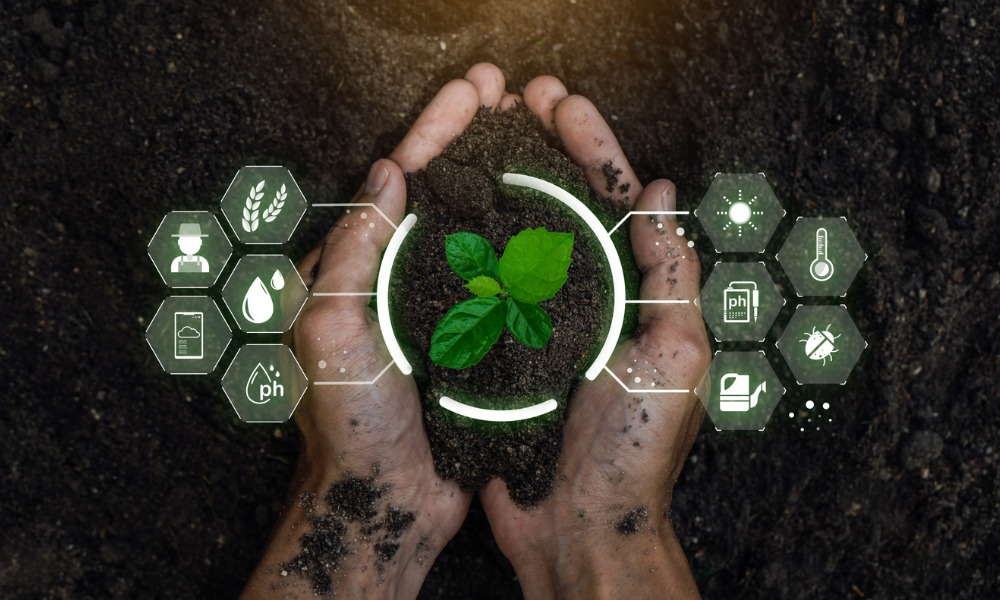
Other deals this week include M&A, investment deals in biotech, mining sectors

Canadian grains producer Viterra and its US rival are merging to create a North American agricultural trading giant in a deal valued at approximately $11 billion (US$8.2 billion). Also in this deals roundup are M&A and investment deals in the biotechnology and mining sectors.
Canadian grains producer Viterra Ltd. and its US rival Bunge Ltd. are merging to create a North American agricultural trading giant in a deal valued at approximately $11 billion (US$8.2 billion). The payment will be made in a combination of stocks and cash.
Viterra is backed by global commodities trader Glencore, which holds 49.9 percent shares in the company. Canada Pension Plan Investment Board is the second largest shareholder, with 40 percent stakes, followed by British Columbia Investment Management Corporation, which holds the remaining 10 percent shares.
The merger is expected to generate about $250 million of annual gross pre-tax combined operations within three years.
Upon deal completion, Bunge shareholders will own 70 percent of the combined company while Viterra shareholders will own the remaining 30 percent.
Bunge CEO Greg Heckman said, “The combination of Bunge and Viterra significantly accelerates Bunge’s strategy, building on our fundamental purpose to connect farmers to consumers to deliver essential food, feed and fuel to the world.”
Upon deal completion, the combined company will include eight Bunge directors and four representatives nominated by Viterra shareholders.
The combined company will keep the Bunge name, with headquarters in St. Louis.
The deal is expected to close in mid-2024, subject to customary closing conditions.
Swiss pharmaceutical Novartis agreed to acquire Chinook Therapeutics Inc., a developer of a rare kidney disease drug, for up to $4.66 billion (US$3.5 billion), in a deal marked as one of the biggest acquisitions to date in Canada’s life sciences sector.
Chinook CEO Eric Dobmeier said, “We believe this transaction is great news for kidney disease patients and the programs we have built.”
Chinook’s pipeline includes two late-stage assets in clinical development to treat Immunoglobulin A Nephropathy (IgAN), a progressive, rare kidney disease that mostly affects young adults and currently lacks targeted treatment options.
“IgA Nephropathy is a devastating disease mostly affecting young adults and potentially leading to dialysis or kidney transplantation,” said Novartis CEO Vas Narasimhan. “We are excited by this unique opportunity to address one of society’s most challenging healthcare issues, with the potential to bring additional much-needed treatment options to patients.”
The transaction is anticipated to be completed in the second half of 2023, subject to regulatory approvals and other closing conditions.
Rio Tinto Ltd. agreed to invest $1.4 billion to expand the AP60, a low-carbon aluminium smelter technology, at its Jonquière Complex in Saguenay, Quebec. The total funding includes up to $150 million of financial support from the Quebec government.
The expansion will enable Rio Tinto to reduce its greenhouse-gas emissions by 290,000 tonnes per year, equivalent to removing 63,000 vehicles off the road.
“This investment is aligned with our strategy to decarbonise our value chains and grow in materials essential for the energy transition,” said Rio Tinto CEO Jakob Stausholm. “Our AP60 technology is already proven and producing some of the lowest carbon aluminium in the world, thanks to the expertise of our highly qualified workforce and access to renewable hydropower. This is the most significant investment in our aluminium business for more than a decade and it will further strengthen Rio Tinto’s high-quality and low-carbon offering to our customers as they also work to reduce their own carbon footprint. I would like to thank both the Government of Canada and Government of Quebec for their support in progressing this project. We are also continuing to work together on the future implementation of the ELYSISTM zero carbon smelting technology at our Quebec facilities.”
“A great momentum is building in our regions for our green economy,” said Quebec Premier François Legault. “The aluminium industry in Saguenay-Lac-Saint-Jean has always been a real source of pride and has created considerable wealth in the region. Today's announcement will breathe new life into this industry with greener, less polluting processes. The use of AP60 pots will halve GHG emissions in aluminium production. With the upcoming ELYSISTM technology, Quebec aims to become the world champion of green aluminium.”
“Canada has all it takes to be the global green supplier of choice. And that is why our government is collaborating with key industry actors like Rio Tinto to produce the world’s greenest aluminium,” said Canada’s Minister of Innovation, Science and Industry, François-Philippe Champagne. “By supporting the production of green metals, we ensure Canada will remain at the forefront of the economy of tomorrow. When economic benefits are paired with a commitment to developing green solutions, it’s a win for our industry, our cleantech ecosystem and our workers.”
Construction is expected to begin in 2026.